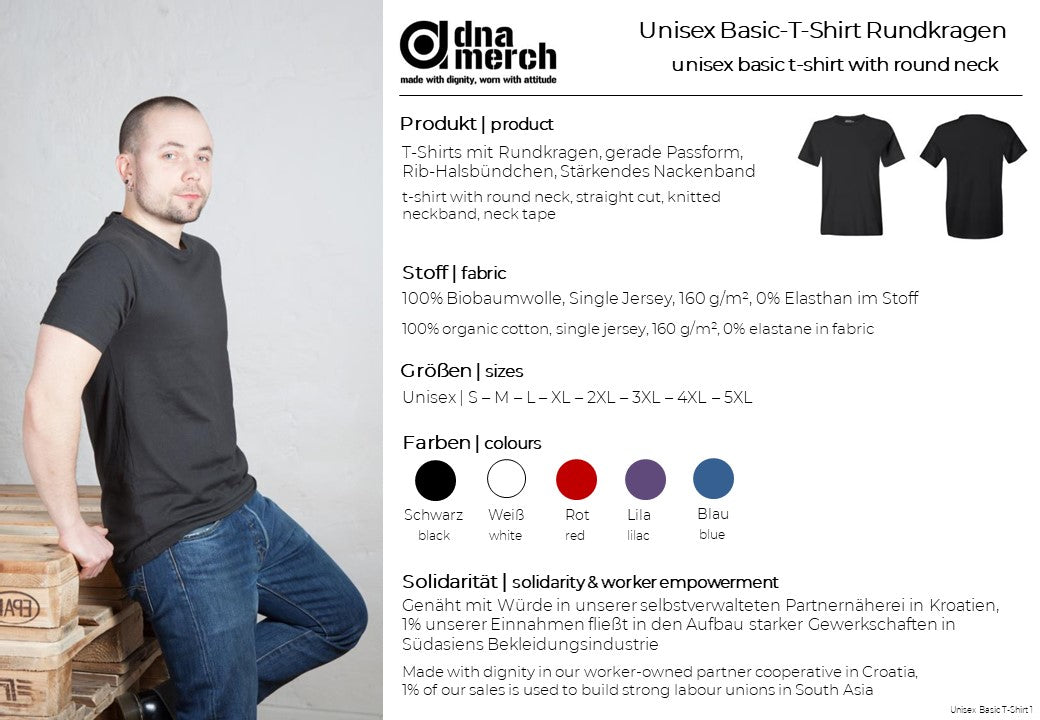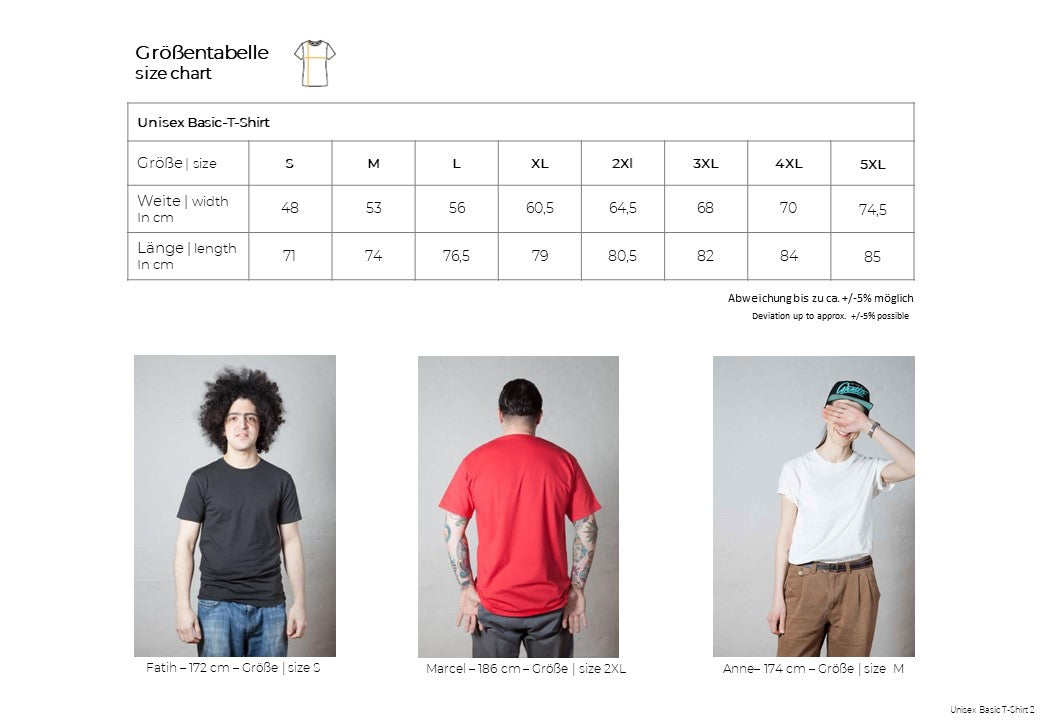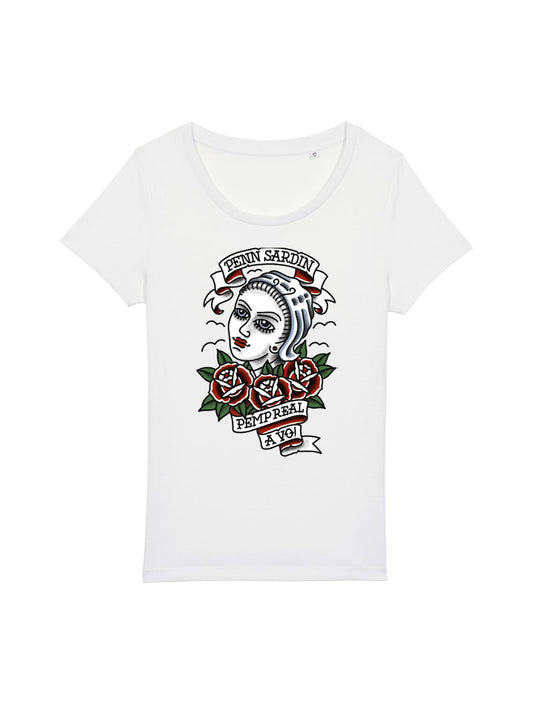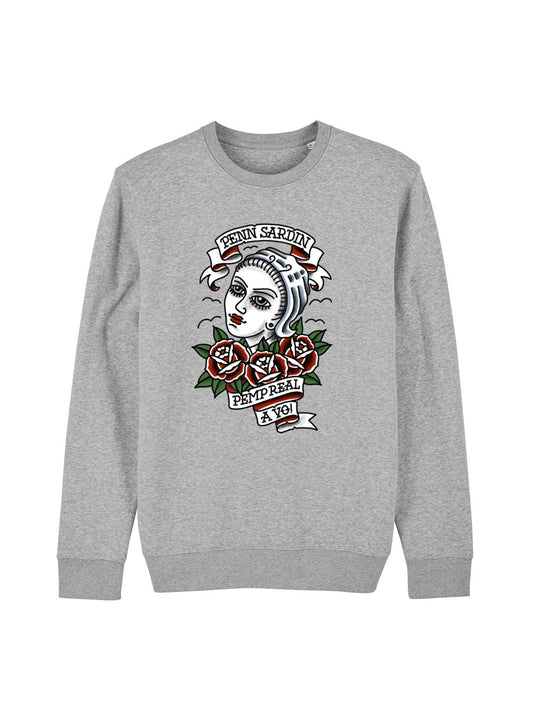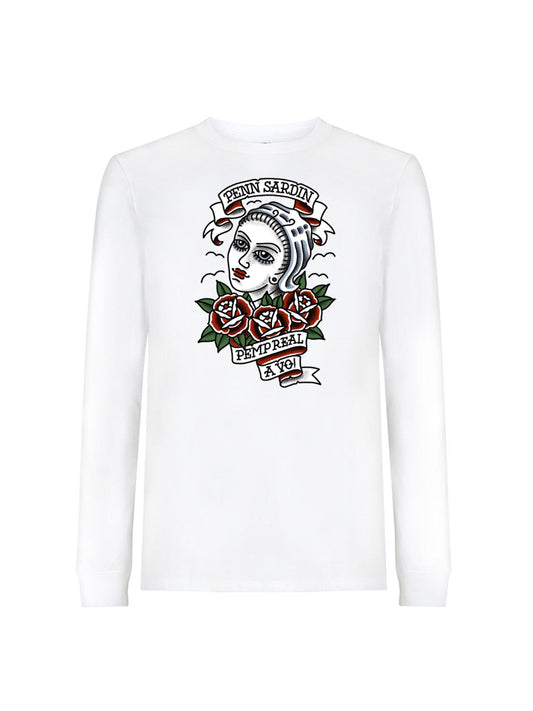T-Shirts Unisex Penn Sardin (Sardine Workers' Strike)
T-Shirts Unisex Penn Sardin (Sardine Workers' Strike)
Couldn't load pickup availability
The November 2024 design embraces the centenary of one of the most significant events in European women’s labour history, i.e. the great sardine workers’ strike in Douarnenez on the Finistère coast of Brittany in November 1924. ‘Penn Sardin’ literally means “Sardine Head”, a name given to the local women sardine cannery workers.
Douarnenez became the first sardine port in France. The whole town lived on sardines. In 1924, canneries abounded, twenty-two, plus a can factory, 2,000 workers, 5,000 fishermen. Under the impetus of Nantes capitalism, stemming in part from the slave trade, a new class of industrialists settled in Douarnenez. Two worlds faced each other. The difficult living conditions of the Penn Sardins worsened. Canning factory workers were the least paid in France.
Despite a law passed in 1919, women workers worked 10 hours a day, had no bonus for overtime and worked nights, which was supposedly illegal. In the winter of 1924, 2,100 people, including 600 women, demonstrated against their wage of 80 cents an hour and the fact that they had to go to the factory at any time day or night, when a shipment of sardines was delivered.
The Douarnenez sardine workers' strike in November 1924 to demand a wage increase was the beginning of a mobilization that lasted several months in the region. The strikers, mostly women, marched with the slogan "Pemp real a vo!" (Five reals it will be!). Joséphine Pencalet, who belonged to the Douarnenez metalworkers' union, took part in the strike. Her name in Breton, Penn kalet, meant "hothead" or "stubborn".
The gendarmes repressed the strikers and called in strikebreakers, and the mayor, Daniel Le Flanchec, who had publicly supported the revolt, was suspended from office. The Minister of Labor proposed mediation but the struggle continued. The workers were joined by sailors and occupied the streets, the town was blocked, and the conflict was covered by the media.
On December 5, 1924, the newspaper L'Humanité reported on the charge against the demonstrators, carried out on behalf of the Ministry of the Interior, in an article entitled "Le sang ouvrier a coulé à Douarnenez" ("Workers' blood has flowed in Douarnenez"). The minutes of Le Flanchec's suspension from office were also published. The report of the suspension of Daniel Le Flanchec for rebellion provoked national media coverage of the strike in the daily newspapers, including Paris Soir and La Dépêche de l'Aube, which was moved by "the provocative intransigence of the sardine cannery owners".
On January 6, 1925, the factory owners gave in to the workers' demands.
This design was created by Berlin based Brazilian tattoo artist Caetano Calomino. By the way, it was someone from the dna merch Community who pointed us to this anniversary. Many thanks, Michael!
Attention: Made to order production
You order and we produce the item exclusively for you! Together we avoid overproduction and lessen the impact on the environment. The maximum production time is 10 days after receipt of payment. After that your order will be shipped. More info under “Shipping and Delivery”.
Important: Please take enough time to choose the right size for you. You can find the size chart at the end of each product picture gallery. All products are made especially for you and therefore cannot be easily sent back and be replaced. Of course, unworn goods with obvious material or printing errors are excluded from this.
Brand & Manufacturer: dna merch, Humana Nova Social Cooperative
Material: 100 percent organic cotton
Printing & Finishing: High quality skin and ecofriendly direct-to-garment prints
Care: Important care instructions are available at the bottom of our website
Stock Info: If, in exceptional cases, your size is not in stock, we will send you an organic T-shirt of the same material quality by Fair Wear Foundation Leader Stanley & Stella instead.
Share
Similar Products
T-Shirt Women Penn Sardin (Sardine Workers' Strike)
Sweatshirt Penn Sardin (Sardine Workers' Strike)
Long Sleeve T-Shirt Penn Sardin (Sardine Workers' Strike)
Hoodie Penn Sardin (Sardine Workers' Strike)




